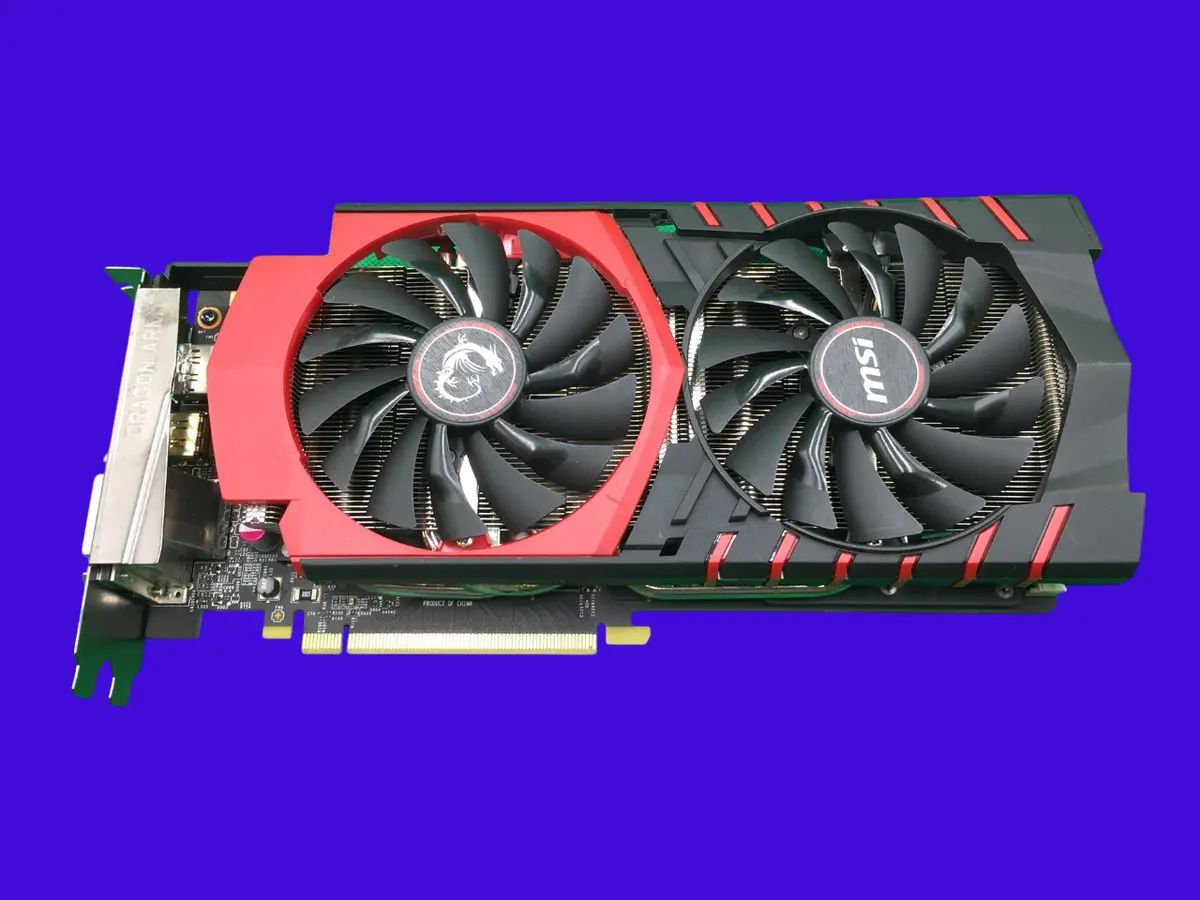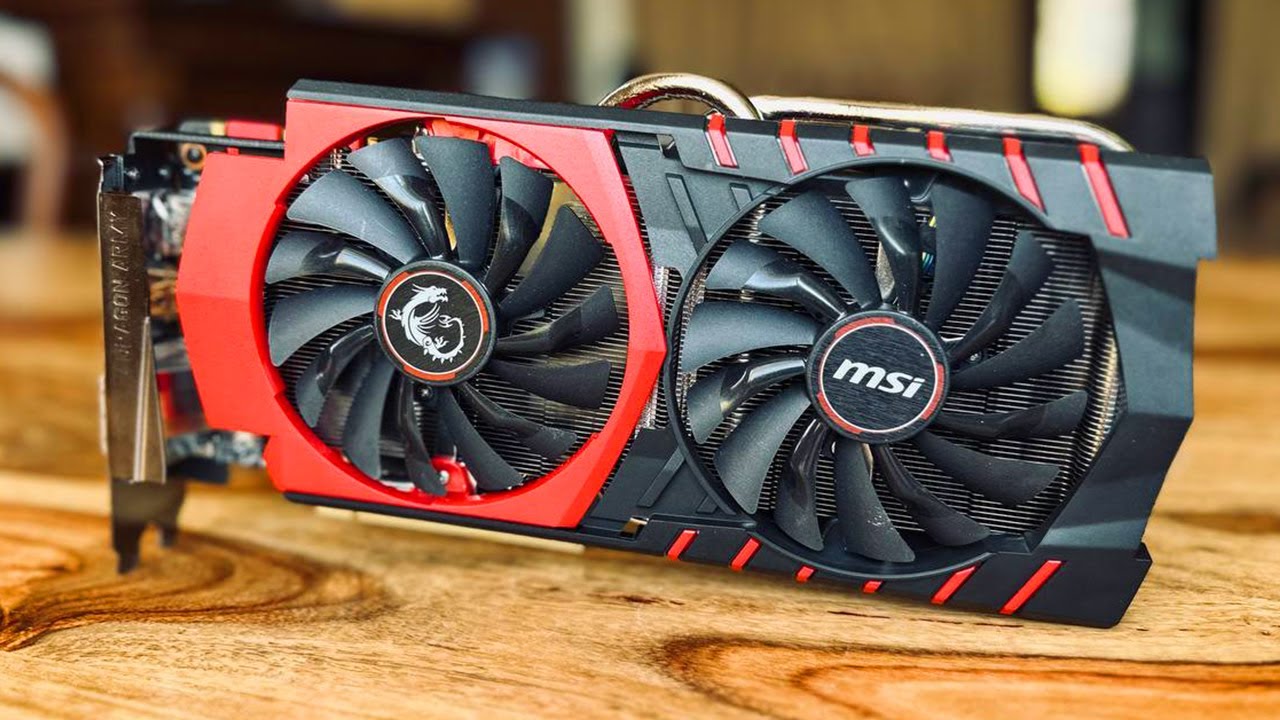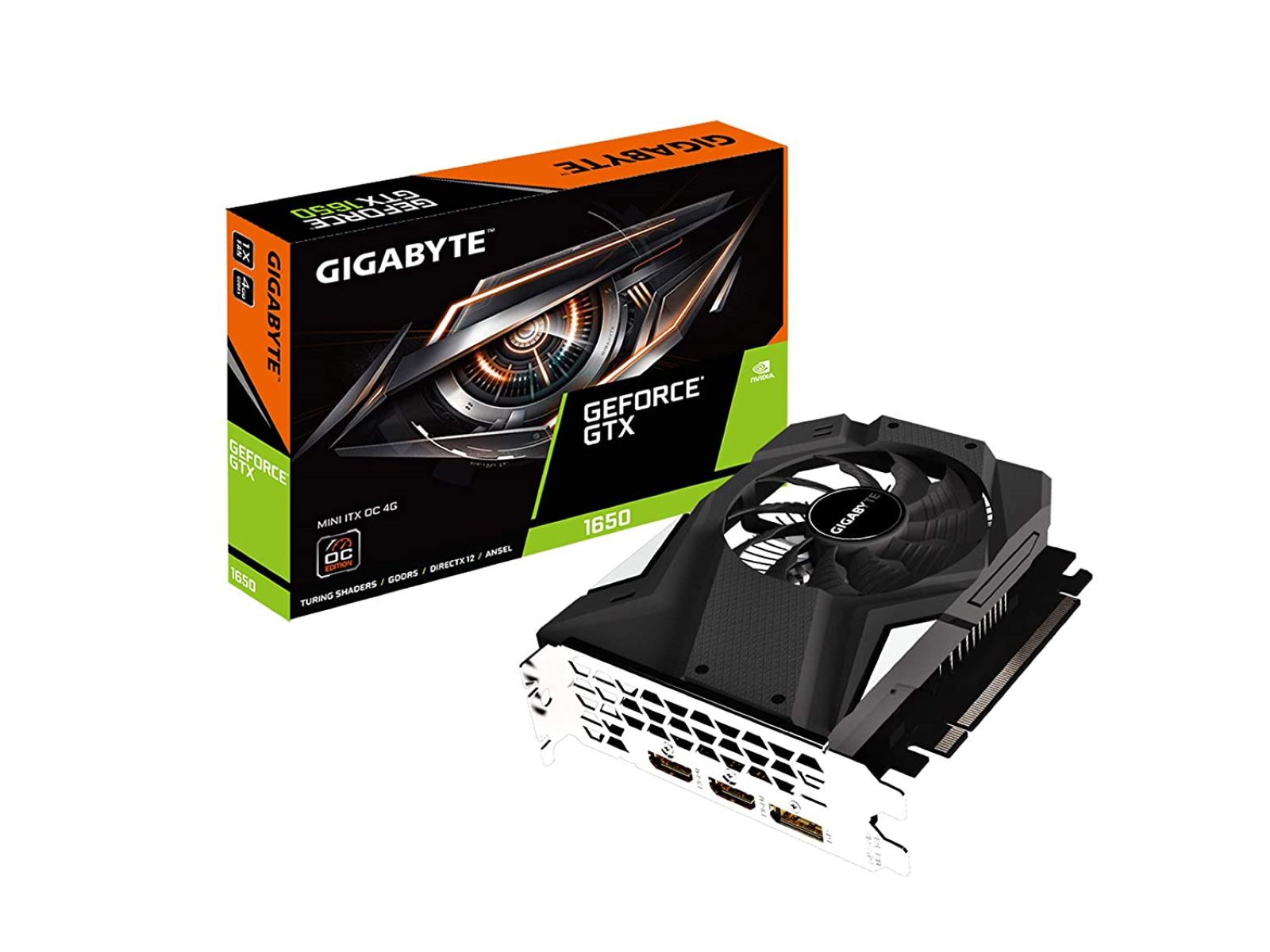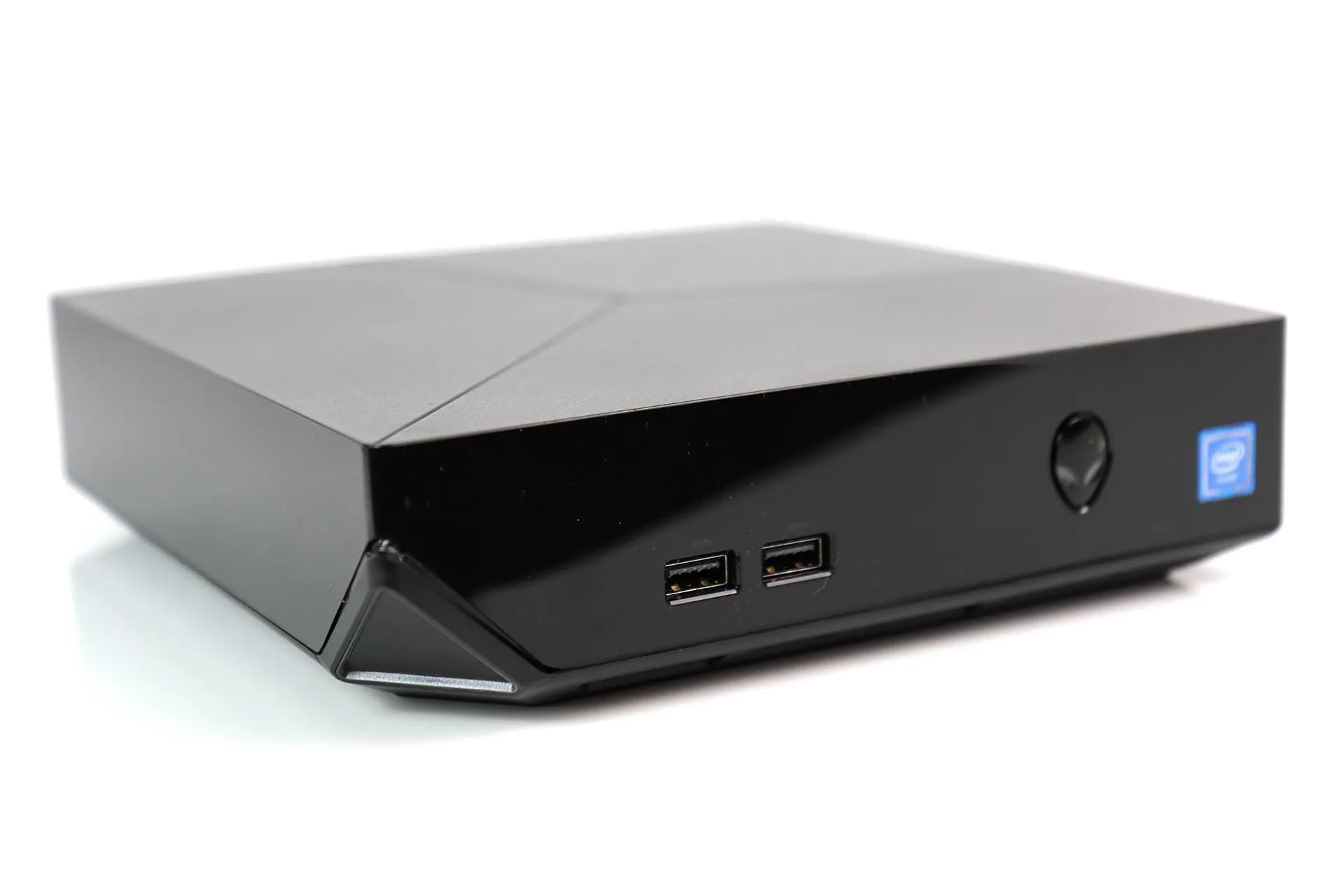Introduction
When it comes to gaming, having a powerful and efficient graphics card is essential. One such graphics card that has garnered a lot of attention among gamers is the GTX 970. Known for its impressive performance and affordability, the GTX 970 has become a popular choice for both casual and hardcore gamers.
However, what many people fail to realize is that a graphics card like the GTX 970 requires a sufficient power supply unit (PSU) to operate at its full potential. The PSU is responsible for delivering the required power to all the components in your computer, including the graphics card.
In this article, we will dive into the details of what kind of PSU a GTX 970 needs. We will discuss the power requirements, recommended wattage, factors to consider when choosing a PSU, and more. So, if you are planning to build or upgrade a gaming rig with a GTX 970, this article is a must-read to ensure that you have a reliable and appropriate power supply that can handle the demands of your graphics card.
What is a PSU?
A power supply unit (PSU) is a crucial component of a computer that provides the necessary electrical power to all the other components. It takes the alternating current (AC) power from your wall outlet and converts it into direct current (DC) power that is suitable for your computer’s internal components.
A PSU consists of various cables and connectors that are responsible for delivering power to different parts of your computer, such as the motherboard, CPU, GPU, storage drives, and other peripheral devices. Without a reliable and efficient PSU, your computer will not be able to function properly or deliver optimal performance.
PSUs come in various wattages and ratings, and it is important to choose one that meets the power requirements of your computer components. The power requirements vary depending on the specific components you have installed, including the graphics card, which consumes a significant amount of power.
Choosing a PSU with the appropriate wattage is crucial to ensure that your computer operates smoothly without any power-related issues. Additionally, a high-quality PSU can help prolong the lifespan of your components and protect them from potential damage due to power fluctuations or surges.
Now that we have a basic understanding of what a PSU is let’s move on to the specific power requirements of the GTX 970 graphics card and the recommended wattage for its optimal performance.
How much power does a GTX 970 need?
The power consumption of the GTX 970 graphics card is an important factor to consider when choosing a power supply unit (PSU) for your gaming rig. GPUs are known to be power-hungry components, and the GTX 970 is no exception.
On average, the GTX 970 requires a power supply with a minimum wattage of 500 watts. This wattage recommendation takes into account the power requirements of the graphics card itself, as well as the power consumed by other components in the system, such as the CPU, RAM, storage drives, and peripherals.
However, it’s essential to note that the actual power consumption of the GTX 970 can vary depending on factors like system configuration, load, and overclocking. Under heavy gaming loads or when overclocked, the power consumption can increase significantly.
If you plan on overclocking your GTX 970 or have a high-end CPU, it is advisable to consider a higher wattage PSU. This will provide enough headroom for stable and reliable power delivery, preventing any issues related to insufficient power supply.
Another important consideration related to power consumption is the efficiency of the PSU. Higher efficiency units, such as those with 80 Plus certification, are designed to convert AC power to DC power more efficiently, resulting in less wasted energy and lower operating costs over time.
Now that we have an idea of the power requirements for the GTX 970, let’s move on to the recommended power supply wattage for this graphics card.
Recommended power supply wattage for GTX 970
When it comes to choosing a power supply unit (PSU) for your system with a GTX 970 graphics card, it is crucial to ensure that you have sufficient power to meet the demands of your components. While the GTX 970 itself may have a minimum requirement of 500 watts, it is recommended to opt for a PSU with a higher wattage for optimal performance and stability.
A recommended wattage for a PSU to power a system with a GTX 970 would be in the range of 550-650 watts. This additional headroom allows for potential upgrades in the future, as well as providing stable power delivery under varying loads.
Choosing a PSU with a higher wattage than the minimum requirement ensures that it operates comfortably at a lower percentage of its maximum capacity. This not only reduces the strain on the PSU but also improves efficiency and longevity.
Furthermore, a higher wattage PSU allows for potential overclocking of the GPU and other components. Overclocking can significantly increase power consumption, so having a PSU with a higher wattage ensures a stable power supply even under these demanding conditions.
It’s important to note that the wattage recommendation may vary based on your specific system configuration. If you have multiple hard drives, extensive RGB lighting, or other power-hungry components, it’s advisable to opt for a PSU with an even higher wattage to accommodate these additional power requirements.
Lastly, always choose a reputable brand and model when selecting your PSU. A high-quality PSU from a trusted manufacturer will provide better efficiency, reliability, and protection for your components, ensuring a smoother and more enjoyable gaming experience with your GTX 970.
Now that we understand the recommended PSU wattage for the GTX 970, let’s explore some other factors to consider when choosing a power supply for this graphics card.
Factors to consider when choosing a power supply for GTX 970
Choosing the right power supply unit (PSU) for your system with a GTX 970 graphics card is crucial for stable performance and longevity. Here are some factors to consider when making this important decision:
- Wattage: As mentioned earlier, the recommended wattage for a GTX 970 system is around 550-650 watts. This provides enough power for the graphics card and other components. Consider your system’s power requirements and opt for a PSU with adequate wattage.
- Efficiency: PSU efficiency refers to how effectively it converts AC power into DC power. Look for PSU models with higher efficiency ratings, such as 80 Plus Bronze, Silver, Gold, or Platinum. Higher efficiency not only saves energy but also reduces heat and prolongs the lifespan of the PSU.
- Modularity: Modular PSUs feature detachable cables, allowing you to connect only the necessary cables for your components. This helps with cable management, airflow, and reduces clutter. Semi-modular or fully modular PSUs are recommended for cleaner and more organized systems.
- Connectors: Ensure that the PSU you choose has the necessary connectors to support your system. The GTX 970 typically requires a 6-pin and an 8-pin power connector. Additionally, check for other connectors needed for your CPU, storage drives, and peripherals.
- Brand and reliability: Choose PSUs from reputable brands known for their reliability and quality. Look for reviews and ratings of different PSU models to gauge their performance and customer satisfaction. Trusted brands often offer better warranties and customer support.
- Budget: Consider your budget when choosing a PSU, but remember that the PSU is a crucial component that powers your entire system. Investing in a high-quality PSU can ensure stability and prevent potential issues in the long run.
By considering these factors, you can make an informed decision when choosing a power supply for your GTX 970 system. Remember to prioritize reliability, efficiency, and compatibility to ensure optimal performance and longevity of your components.
Next, let’s explore the importance of PSU efficiency and certification ratings.
PSU efficiency and certification ratings
When choosing a power supply unit (PSU) for your system, it’s important to pay attention to its efficiency and certification ratings. PSU efficiency refers to how well it converts AC power from your wall outlet into DC power for your components.
PSU efficiency is measured by certification ratings such as 80 Plus Bronze, Silver, Gold, or Platinum. These ratings indicate the percentage of energy the PSU can convert efficiently at different load levels. Here’s a breakdown of the certification levels:
- 80 Plus Bronze: PSUs with this certification are required to deliver at least 82% efficiency at 20% load, 85% at 50% load, and 82% at 100% load.
- 80 Plus Silver: This certification requires PSUs to achieve 85% efficiency at 20% load, 88% at 50% load, and 85% at 100% load.
- 80 Plus Gold: PSUs with this certification offer higher efficiency, reaching 87% efficiency at 20% load, 90% at 50% load, and 87% at 100% load.
- 80 Plus Platinum: The highest certification level, Platinum-rated PSUs, are designed to deliver 90% efficiency at 20% load, 92% at 50% load, and 89% at 100% load.
Opting for a PSU with a higher certification rating translates to higher efficiency and lower energy wastage. Higher efficiency means that less power is lost in the conversion process, resulting in reduced heat output and lower energy costs over time.
However, keep in mind that higher certification levels often come at a higher price point. Consider your budget and power consumption needs when deciding which certification level is suitable for your system.
Another factor to consider when it comes to efficiency is the 80 Plus Titanium certification. PSUs with this certification have even higher efficiency ratings than Platinum-rated ones, but they are generally more geared towards enterprise-level systems and may not be necessary for most gaming setups.
Remember to take into account the specific power requirements of your system, including the GTX 970 graphics card, when choosing a PSU with an appropriate efficiency rating. A higher efficiency PSU not only saves you money on your energy bills but also provides a stable and reliable power supply for your components.
Next, let’s delve into the importance of power supply cables for proper connectivity with the GTX 970.
Power supply cables for GTX 970
Having the right power supply cables is essential for proper connectivity between your power supply unit (PSU) and the GTX 970 graphics card. These cables ensure a consistent and reliable power supply to the graphics card, allowing it to perform optimally.
When it comes to the GTX 970, you will typically need two types of power cables: a 6-pin and an 8-pin power connector. These connectors provide the necessary power input for the graphics card to function efficiently.
It is important to check the cable compatibility between the PSU and the graphics card. Ensure that your PSU provides the required cables with the appropriate connectors for the GTX 970. Some PSUs come with modular cables, allowing you to connect only the cables needed for your specific components, reducing clutter and improving cable management.
When connecting the power cables, make sure they are securely plugged into the corresponding connectors on the graphics card and the PSU. A loose or improperly connected cable can lead to power delivery issues or even damage the components.
Additionally, to ensure proper power distribution and prevent overloading of any single cable, it is recommended to use separate cables for each power connector on the graphics card. This ensures that the power load is evenly distributed and reduces the risk of overheating or power-related issues.
Always follow the manufacturer’s guidelines and specifications when connecting the power supply cables to your GTX 970. Each graphics card model may have slightly different requirements, so it is crucial to read the documentation or check the manufacturer’s website for specific instructions.
Furthermore, proper cable management is important for airflow and overall system aesthetics. Use cable ties or routing channels to keep the cables organized and out of the way of other components. This helps to improve airflow within the case, leading to better cooling efficiency and reduced chances of overheating.
By ensuring proper power supply cable connectivity, you can guarantee a stable power delivery to your GTX 970 graphics card, maximizing its performance and longevity.
Next, let’s discuss the relationship between overclocking and power supply requirements for the GTX 970.
Overclocking and power supply requirements
Overclocking your GTX 970 can provide a significant performance boost, allowing you to push the graphics card beyond its stock settings. However, it’s essential to understand the implications of overclocking on your power supply unit (PSU) requirements.
When you overclock your GTX 970, it consumes more power to sustain the higher clock speeds and increased voltage. This increased power consumption puts additional strain on the PSU, as it needs to deliver more power to meet the demands of the overclocked graphics card.
If you plan on overclocking your GTX 970, it is advisable to choose a power supply with a higher wattage than the minimum recommended for the card. This additional headroom ensures that the PSU can handle the increased power requirements without running at its maximum capacity, which can potentially lead to instability or power-related issues.
Moreover, it’s essential to choose a PSU with a higher certification rating, such as 80 Plus Gold or Platinum, to ensure efficient power delivery during overclocking. Higher efficiency translates to less wasted energy and reduced heat output, which can help maintain stable operating temperatures even when pushing the graphics card to its limits.
Additionally, keep in mind that overclocking not only affects the power consumption of the graphics card but also the entire system. Overclocking the GPU puts additional strain on other components like the CPU and RAM, resulting in higher power requirements for the entire system.
When considering an overclocking setup, it’s crucial to calculate the total power requirements of all components, including the graphics card, CPU, RAM, storage drives, and any other peripherals. This will help you choose a PSU with the appropriate wattage and quality to ensure stable and reliable power delivery.
Lastly, always monitor the temperatures and performance of your overclocked GTX 970 and the overall system. Keep an eye on the GPU and CPU temperatures to ensure they stay within safe limits. If you notice any instability or frequent crashes during overclocking, it may indicate that your PSU is unable to provide enough power to sustain the overclocked settings.
By carefully considering the power supply requirements for overclocking, you can ensure a stable and efficient power delivery to your GTX 970, maximizing its performance potential while maintaining the integrity of your system.
Now that we understand the implications of overclocking on power supply requirements, let’s wrap up the article with a summary of the key points discussed.
Conclusion
Choosing the right power supply unit (PSU) for your GTX 970 graphics card is crucial for optimal performance and stability. The GTX 970, like any powerful graphics card, requires a reliable and sufficient power supply to deliver its full potential.
We have discussed various factors to consider when selecting a PSU for your GTX 970 system. These include wattage, efficiency, modularity, connectors, brand reliability, and budget. It’s important to choose a PSU with an appropriate wattage, preferably with a higher certification rating for improved efficiency and lower energy wastage.
Additionally, we explored the importance of using the correct power supply cables and maintaining proper cable management to ensure reliable power delivery and optimized airflow within the system.
Furthermore, we touched upon the implications of overclocking on power supply requirements. When overclocking the GTX 970, it is advisable to choose a PSU with a higher wattage and certification rating to accommodate the increased power consumption and maintain system stability.
In summary, select a PSU with sufficient wattage, high efficiency, and compatibility with your GTX 970 and system configuration. Opt for reputable brands known for their reliability and quality. Properly connect the power supply cables and ensure efficient cable management for improved airflow and aesthetics.
By carefully considering these factors and making an informed decision, you can ensure a reliable and efficient power supply for your GTX 970 system, maximizing its performance, longevity, and overall gaming experience.

























